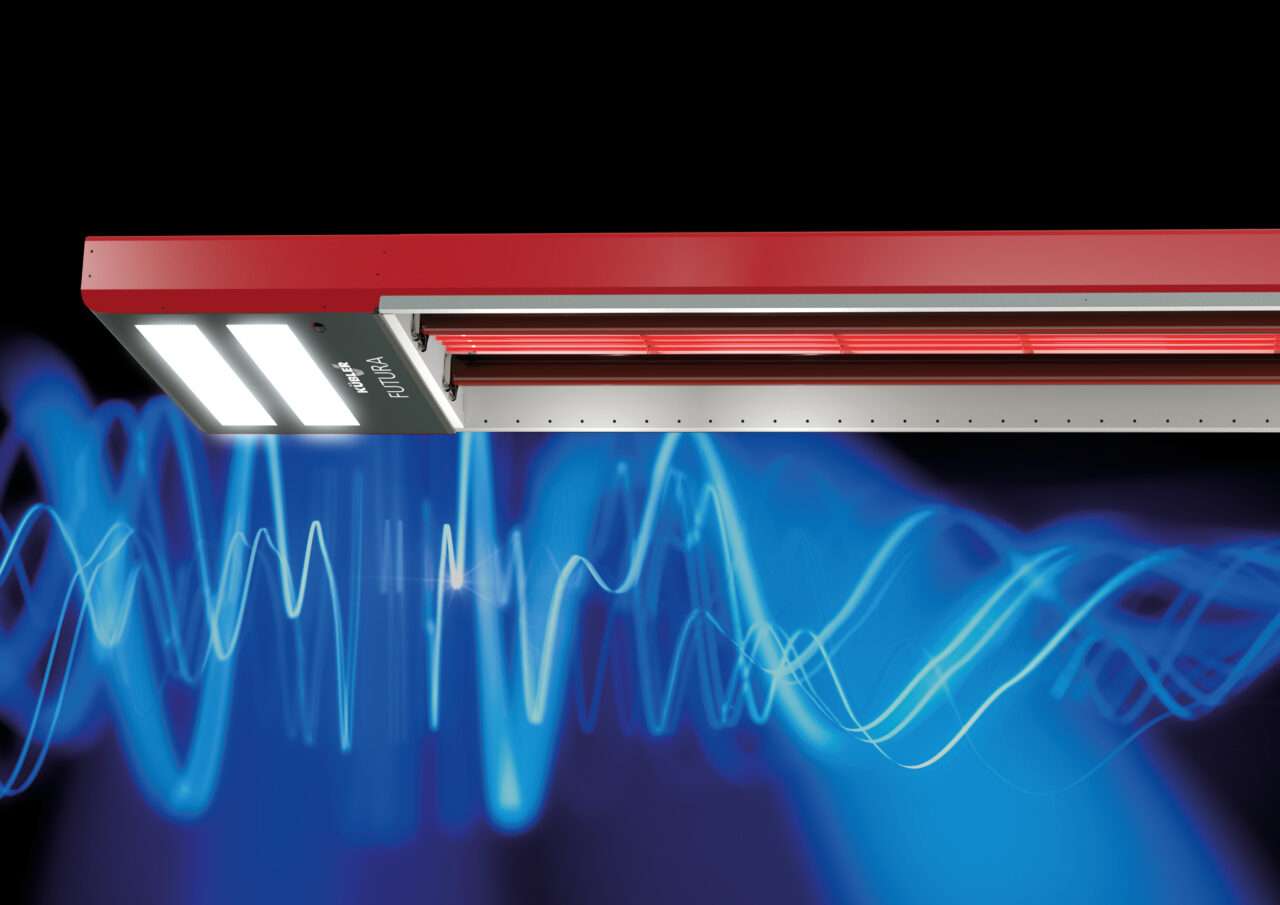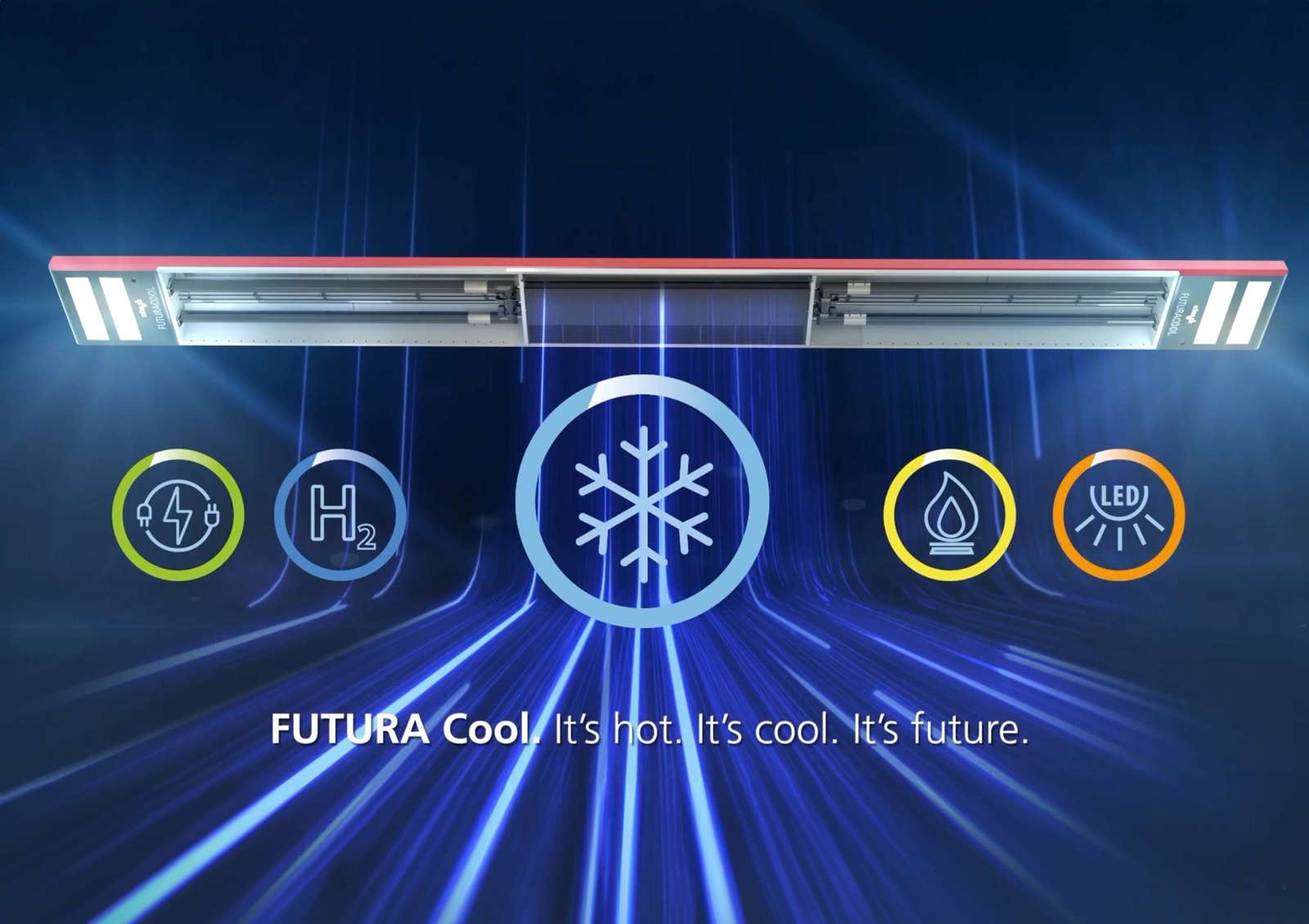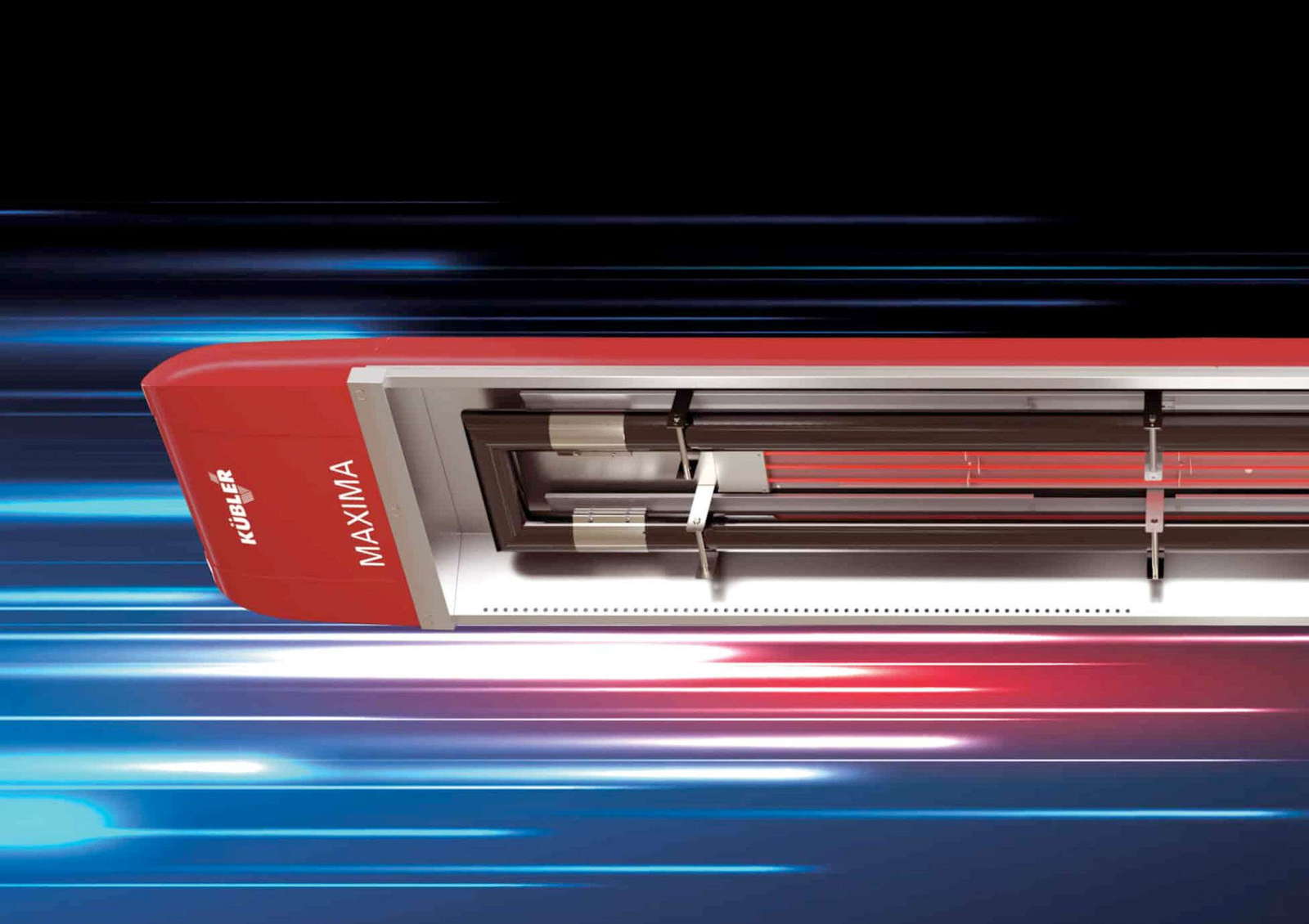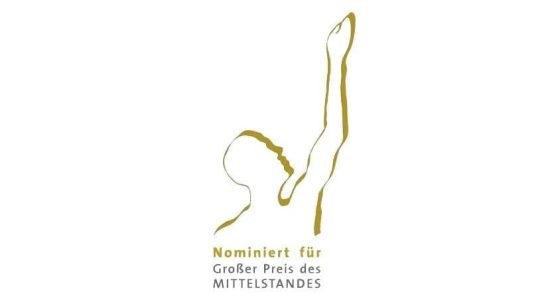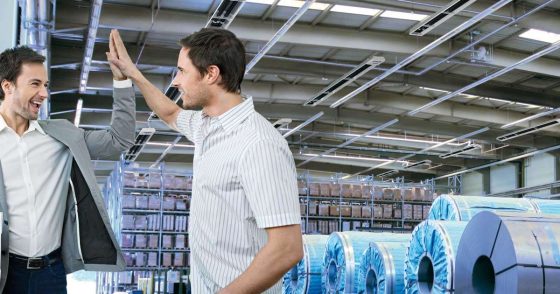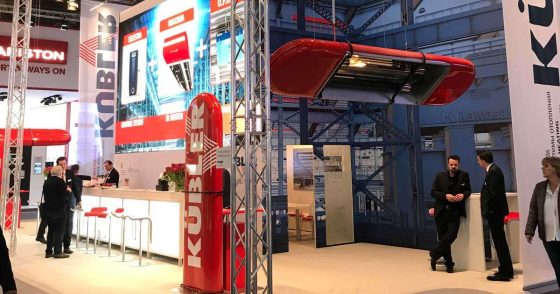Starting signal for the hall heating of the future
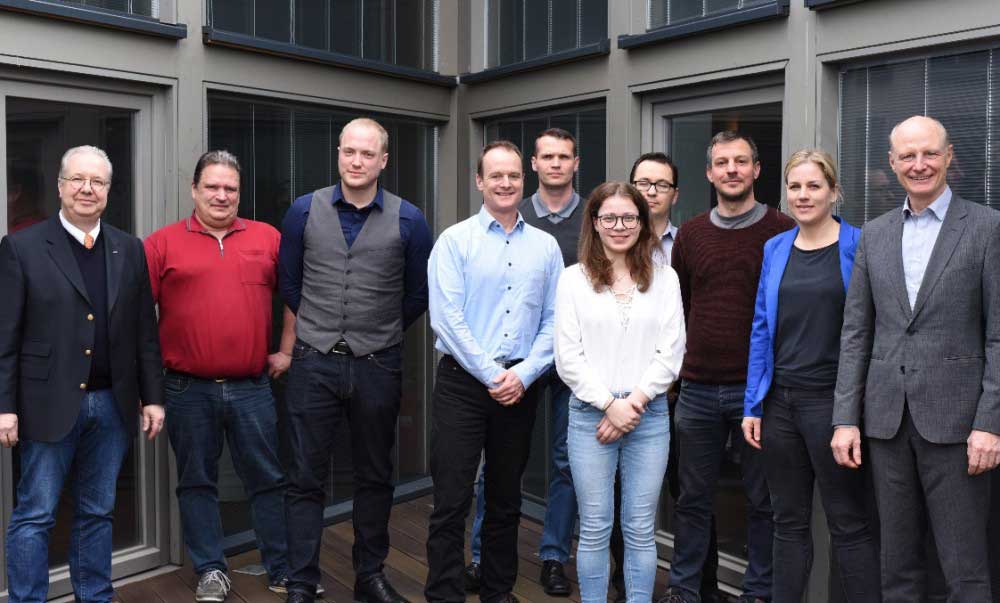
55 percent less CO2 emissions by 2030, 80 to 95 percent by 2050 - these are the German government's targets for the building sector. In addition to residential and office buildings, there is also a great need for industrial buildings (production halls, etc.). In this area, the heating systems from the Ludwigshafen-based infrared specialist KÜBLER already meet the requirements of the next decade. A joint research project between KÜBLER and the Technical University of Kaiserslautern entitled InfraEff now promises the decisive innovative step on the 2050 stage. Supported and funded by the Federal Ministry of Education and Research - BMBF. The cooperation partners met in Ludwigshafen on March 13 to kick off the project.
STARTING SIGNAL FOR THE HALL HEATING OF THE FUTURE
"We are talking about nothing less than the hall heating of the future," says Dr. Jens Findeisen, Head of Research and Development at KÜBLER, welcoming his guests to the joint kick-off meeting in Ludwigshafen. His introduction shows the great importance attached to the research project with the short title InfraEff. This applies to both cooperation partners, namely the Technical University of Kaiserslautern with its Department of Civil Engineering and KÜBLER, the Ludwigshafen-based specialist for energy-saving hall heating systems. Ultimately, the aim is to make the German government's climate protection plans feasible and to make a relevant contribution to the energy transition. With technologies that don't even exist yet.
"InfraEff is the largest and most ambitious research project in our 30-year company history to date."
Thomas Kübler, KÜBLER Ludwigshafen
InfraEff has a specific goal, namely the development of a user-adapted and hybrid infrared heating system. And it is about the integration of renewable energies. The large-scale project will run for 30 months and has a total budget of 1.031 million euros. The time and financial volume makes the project unusual and highly attractive for both research partners. The Federal Ministry of Education and Research (BMBF) also has high hopes for the results and is supporting a large part of the project via the funding agency DLR as part of the KMU-innovativ funding program.
"We plan to achieve energy savings of 30 percent through the project, which means a CO2 reduction of 8 million tons."
Dr. Jens Findeisen; KÜBLER Ludwigshafen
Both project partners agree that the figures are based on a conservative estimate. There can be no greater incentive for KÜBLER. As the most innovative company in the industry for at least two decades, the company sees its special responsibility towards the population and the environment in making a contribution to the energy transition. The Ludwigshafen-based company has already come a long way on this path. With 30 years of experience in this field, KÜBLER's developments ensure energy and CO2 savings of between 30 and 70 percent compared to conventional technologies.
For Thomas Kübler, Managing Partner and founder of KÜBLER GmbH, InfraEff means setting the course for the future viability of his company. At the same time, however, he also sees it as an important contribution to achieving the climate targets. "We are already meeting the German government's targets for 2030. But as an entrepreneur, I'm not just looking at the next 10 years, but the next 30."
"We believe that we can make a really big difference here."
Prof. Dr. Oliver Kornadt, TU Kaiserslautern
KÜBLER's expertise in the field of infrared heating is an important addition to the in-house know-how of the team led by Professors Dr. rer. nat. Svenja Carrigan and Prof. Dr. rer. nat. Oliver Kornadt and their research assistant Dipl.-Ing. Marco Hartner in the field of building physics at the Technical University of Kaiserslautern (Department of Civil Engineering). The department already has extensive experience with projects on the topics of low-energy halls and thermal comfort. "We want to transfer our knowledge from the areas of office and residential buildings about what conditions people find comfortable to halls. And we want to do this while simultaneously increasing energy efficiency," says Kornadt, formulating a sub-goal of the research project.
But there is more to it than that: "InfraEff aims to heat only the hall zones that are needed with a completely new concept. The large volume of the project allows us to touch on different approaches. This is incredibly exciting and, above all, it has practical relevance." Even if the scientific findings relating to the hall heating of the future are the main focus for TU Kaiserslautern, it is precisely this practical relevance that is a relevant aspect for the researchers. "The department has a long history of working with commercial enterprises to implement research findings in a practical way," says the professor.
"Primary energy sources will continue to make sense in the future if they are used efficiently."
Prof. Dr. Svenja Carrigan, TU Kaiserslautern
The project focuses on combining gas-powered infrared systems with renewable energies. Svenja Carrigan, Professor at the Chair of Building Physics at TU Kaiserslautern, explains: "The fact is that we are currently dependent on fossil fuels such as natural gas. Even if we agree that the focus for the future will be on renewable energies, one of the aims of the project is to show when the use of fossil fuels makes more sense and is more efficient than other energy sources." The scientist thus points out that renewable energies are not always the most energy-efficient solution.
This applies in particular to hall buildings. With regard to the heating of halls, it has been indisputably proven in recent years by several studies, some of which were financed with federal funds, that technically highly developed decentralized heating solutions (such as infrared systems based on efficient dark radiators) are the most ecologically and economically sensible way of heating. And that this can be extremely effective in saving CO2 in the short and medium term. The clearly stated aim of this project is therefore to raise awareness of these energy-saving and resource-conserving technologies. "We want to initiate a rethink and show how efficient fossil fuels such as gas can be in certain areas. And that replacing fossil fuels with renewable energy is not the best solution in all areas." This meaningful differentiation is an enormously important step towards the overarching goal of efficiently protecting the climate.
-
The Großer Preis des Mittelstandes is one of the special awards that KÜBLER has already received. The specialist for energy-efficient hall heating technologies has also already been recognized with the coveted badge of honour. For KÜBLER, this nomination is about the last two opportunities to go one better for Germany's most coveted business award: to be named Premier or Premier Finalist in the Grand Prix for Small and Medium-Sized Enterprises.
-
The new standard heating line for high performance requirements and tight budgets.
-
With around 190,000 visitors, 2,532 exhibitors from 57 countries and an increased proportion of foreign visitors (48 %), ISH once again underlined its importance as the world's leading trade fair from March 11 to 15, 2019. And provided a perfect forum for the latest efficiency-enhancing developments from the hall heating specialist KÜBLER.
-
KÜBLER GmbH, a specialist in energy-saving hall heating systems and one of the protagonists on the road to climate neutrality, is one of the "hidden heroes" in Rhineland-Palatinate. There are 1,300 to 1,650 hidden champions in Rhineland-Palatinate*. Only 23 of these have found a place in the publication "Hidden Champions in the Palatinate". One of the silent market leaders is once again the company KÜBLER [...]
